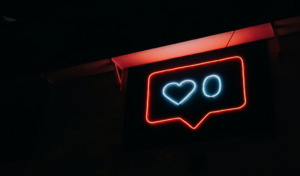 Last week Instagram announced they are going to test hiding ‘likes’ in the U.S. starting this week. Naturally, that has stirred up quite the controversy. Over the past few days, I have come across a wide range of opinions on the matter. Here are some of the most common pros and cons I have noted…
Last week Instagram announced they are going to test hiding ‘likes’ in the U.S. starting this week. Naturally, that has stirred up quite the controversy. Over the past few days, I have come across a wide range of opinions on the matter. Here are some of the most common pros and cons I have noted…
PROS
Improved mental well-being – Some people and in particular teenagers actually measure their self -worth and popularity based on how many ‘likes’ they are getting on their Instagram posts. Sadly, for some people not getting the likes they expected or getting a lower number than friends and peers can cause depression and anxiety.
More content – If people aren’t worrying about maximizing ‘likes’ they will probably post more often because people often worry if they over-post each post won’t receive as much engagement. They also worry about being judged if they don’t get enough likes, so not worrying about people seeing a lack of ‘likes’ eases peoples minds to post more freely. Also, when a post doesn’t receive enough ‘likes’ in a timely fashion it is not uncommon for the user to delete it altogether.
Reduced drama – Believe it or not, there are people who say Instagram ‘likes’ are the leading cause of drama for them. In particular, significant others liking photos (mostly ‘selfies’) of other people is a pain point for some couples. Also, friends ‘liking’ pictures posted by enemies of other friends can be seen as an act of betrayal. This type of drama seems to live more on Instagram vs other social platforms due to the younger demographic and the emphasis on ‘liking’ posts as you scroll.
CONS
Limiting growth for influencers – When brands are evaluating influencers, a key metric is how many ‘likes’ they are averaging on their posts. Many influencers are worried they won’t be fairly evaluated without ‘likes’ and furthermore, it will be harder for them to gauge how they stack up vs other influencers. Some are also arguing that ‘likes’ are the main sources of gratification and fulfillment from the job.
Risk of users going to another platform – Could Instagram turn into the next MySpace? People love their ‘likes’ and they very well could find another platform to share their photos with to get that fix of dopamine.
Emphasis on other metrics – Brands and people alike want to measure their metrics somehow, so without ‘likes’ would it be all about the number of followers? As a brand, it would be hard to measure how you are doing vs. your competitors if you have nothing to compare too. It’s also possible that removing ‘likes’ could lead to an increase in people purchasing followers or finding other ways to ensure their follower count is high.
Personally I can see both sides of this coin. The marketing side of me doesn’t want to see ‘likes’ disappear because I think they are important for brands and influencers, but as an individual I would be happy to see ‘likes’ go because I don’t think its healthy that so many people (mostly teens) are comparing themselves and relying on them for validation. I would love to see Instagram come up with a solution where brand and influencer accounts have their ‘likes’ visible but all other accounts do not, so that way ‘likes’ are only used for business purposes and are less harmful to mental health.


